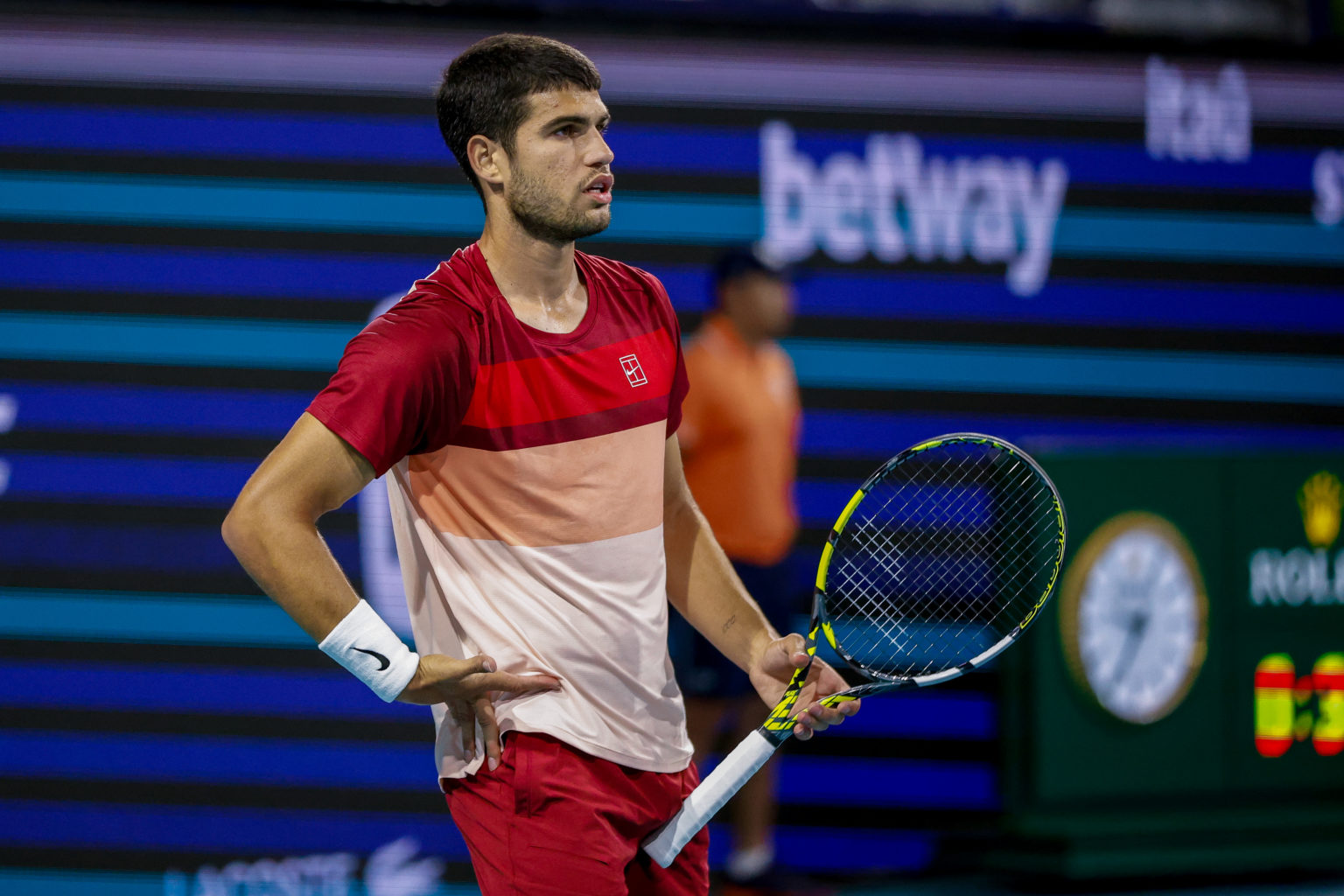
As the clay season dawns over the picturesque cliffs of Monte Carlo, Carlos Alcaraz stands on the cusp of a fresh chapter, his racket poised and his spirit restless. The 21-year-old Spaniard, a prodigy whose meteoric rise has captivated the tennis world, is gearing up for his first match at the 2025 Monte-Carlo Masters, a tournament that has eluded him more often than not. Yet, beneath the excitement lies a candid confession that has caught the tennis faithful off guard: Alcaraz is wrestling with a sense of shame—not for his play, but for how rarely he’s graced this storied event. With the Mediterranean Sea shimmering in the backdrop, his words reveal a vulnerability that only deepens the intrigue surrounding his return to the red dirt.
For Alcaraz, Monte Carlo is more than just another Masters 1000—it’s a canvas of untapped potential. “I’m a little bit ashamed that I’ve just played once,” he admitted with a sheepish grin, his honesty cutting through the usual pre-tournament bravado. That lone appearance came in 2022, a second-round loss to Sebastian Korda that ended before it truly began. Since then, injuries have kept him sidelined, forcing withdrawals in 2023 and 2024—a pronator teres strain in his right arm the culprit last year. Now, as he prepares to face either Fabio Fognini or Francisco Cerundolo in his opener, the weight of that sparse history hangs over him. “I’m excited about playing here, getting the experience, getting matches here, looking forward to get my first win here, that I haven’t yet,” he shared, his voice brimming with a mix of anticipation and resolve.
The shame Alcaraz feels isn’t rooted in failure but in absence. Monte Carlo, with its rich legacy and breathtaking vistas, is a rite of passage for clay-court titans—a stage where Rafael Nadal, his idol, claimed 11 titles. Alcaraz, already a four-time Grand Slam champion, knows the significance of this proving ground. “I think it’s a pretty beautiful club, pretty beautiful tournament,” he mused, his admiration for the event palpable. Yet, his limited participation gnaws at him, a reminder of opportunities missed amid a career otherwise defined by precocious triumph. At just 21, he’s conquered Roland Garros, Wimbledon, and the US Open, but Monte Carlo remains a blank slate—an anomaly he’s determined to correct.
This year’s return comes at a pivotal moment. After a 2025 season marked by flashes of brilliance and frustrating stumbles, Alcaraz is eager to reset. A title in Rotterdam offered early promise, but losses in Doha, Indian Wells, and a shocking first-round exit to David Goffin in Miami left him reeling. “How do I feel? Dreadful,” he’d said after that defeat, his frustration spilling out in a rare public unraveling. The clay, his self-proclaimed favorite surface, beckons as a sanctuary—a chance to rediscover the joy that’s fueled his ascent. “I’m really happy to be here,” he insisted, brushing off the naysayers who’ve questioned his form. “I have watched this tournament many times, but I have only played once here before.”
The pressure, though, is undeniable. With Jannik Sinner, the world No. 1, sidelined by a suspension until May, Alcaraz sees a window to reclaim the top ranking—a goal that’s both tantalizing and burdensome. “A lot of people are telling me to take advantage of Jannik’s absence to get back to the top,” he revealed, the expectation a double-edged sword. “That pressure probably killed me, in a way.” It’s a striking admission from a player whose swagger once seemed unshakable, a glimpse into the toll of being tennis’s golden boy. Yet, he’s not buckling. “With my game, I am really happy about it,” he countered, defiant in his self-belief. “If I don’t win, it doesn’t matter if I play well or not. People are not thinking about the opponent—they are just thinking about me.”
As he steps onto the Monte Carlo clay, Alcaraz carries more than just a racket—he bears the weight of his own lofty standards and a narrative eager to see him soar. His draw is no cakewalk, with Fognini’s crafty veteran guile or Cerundolo’s clay-court prowess awaiting him. Beyond that looms a potential gauntlet: Andrey Rublev, Casper Ruud, or even Novak Djokovic in a final that would test his mettle. But for now, it’s about that first win, that elusive Monte Carlo milestone. “I want to come here and play great,” he declared, his focus sharp despite the shadows of doubt.
The tennis world watches, enthralled by this young Spaniard who wears his heart on his sleeve. Monte Carlo could be where Alcaraz silences the critics, where he transforms shame into triumph. With every slide and every forehand, he’s not just chasing a title—he’s chasing a piece of his own history, determined to make this “pretty beautiful tournament” his own at last.
Leave a Reply